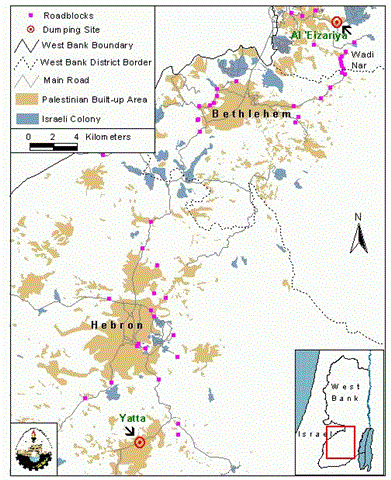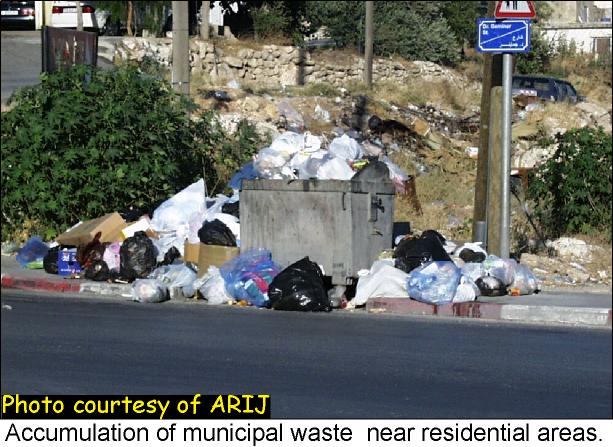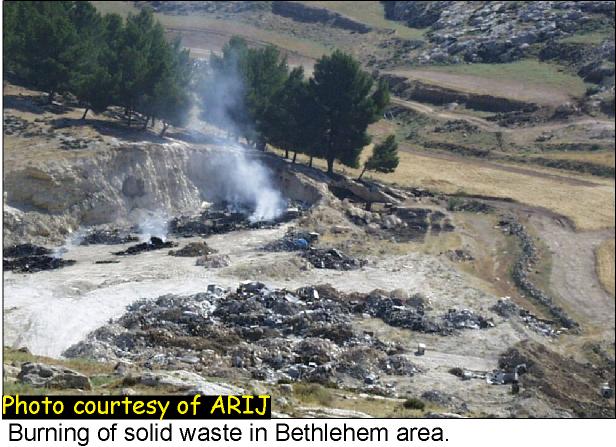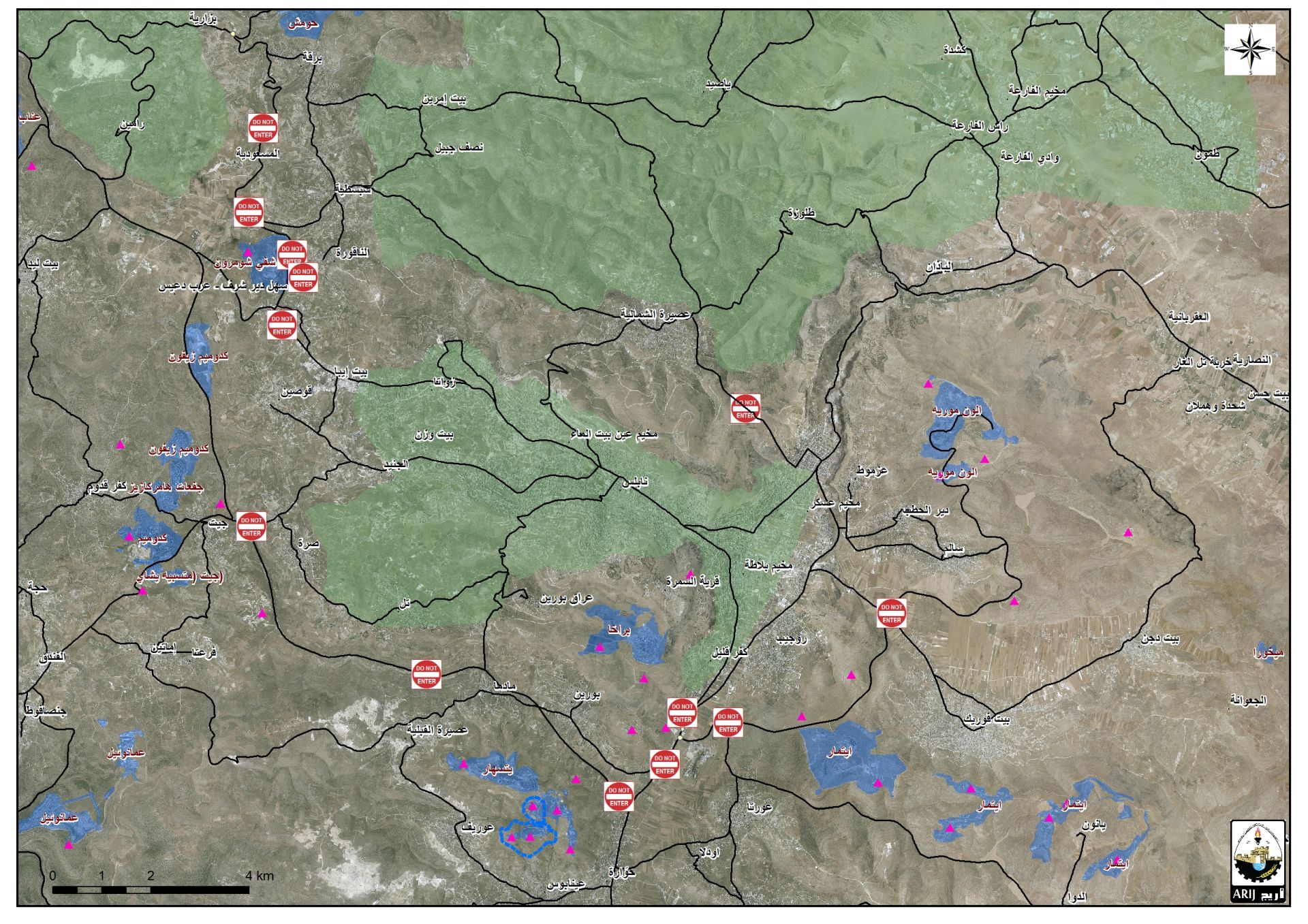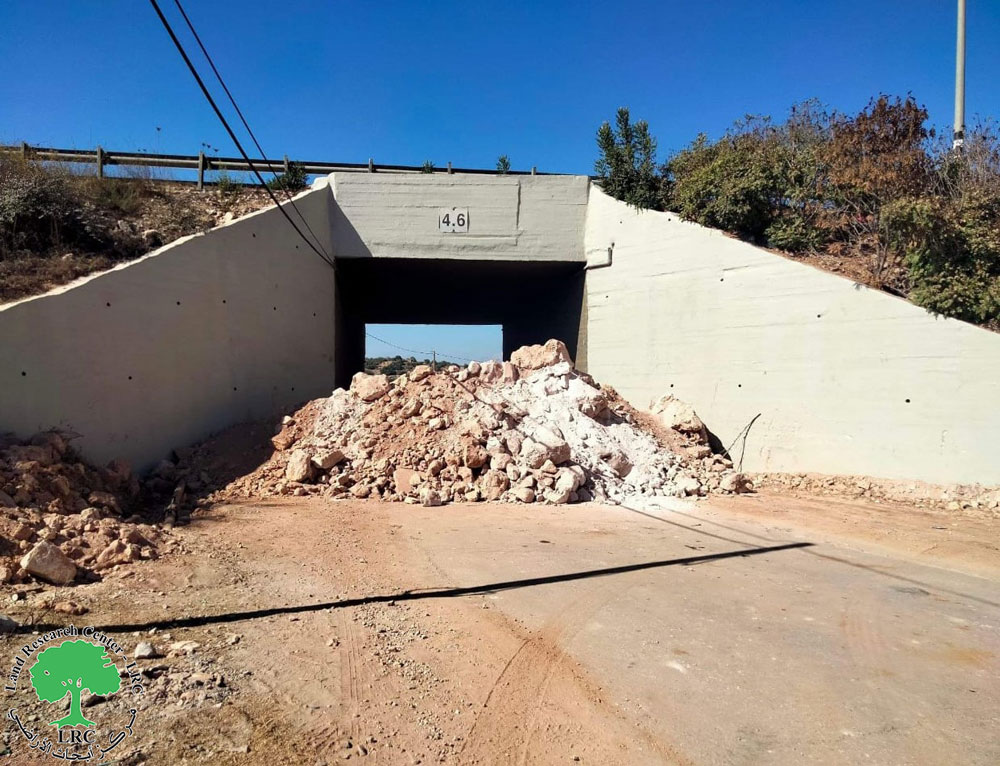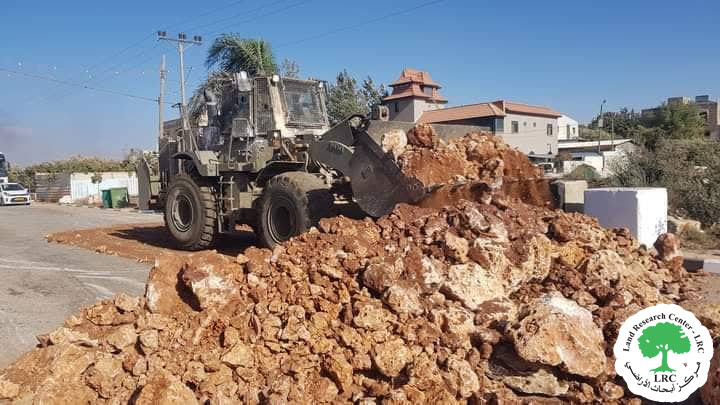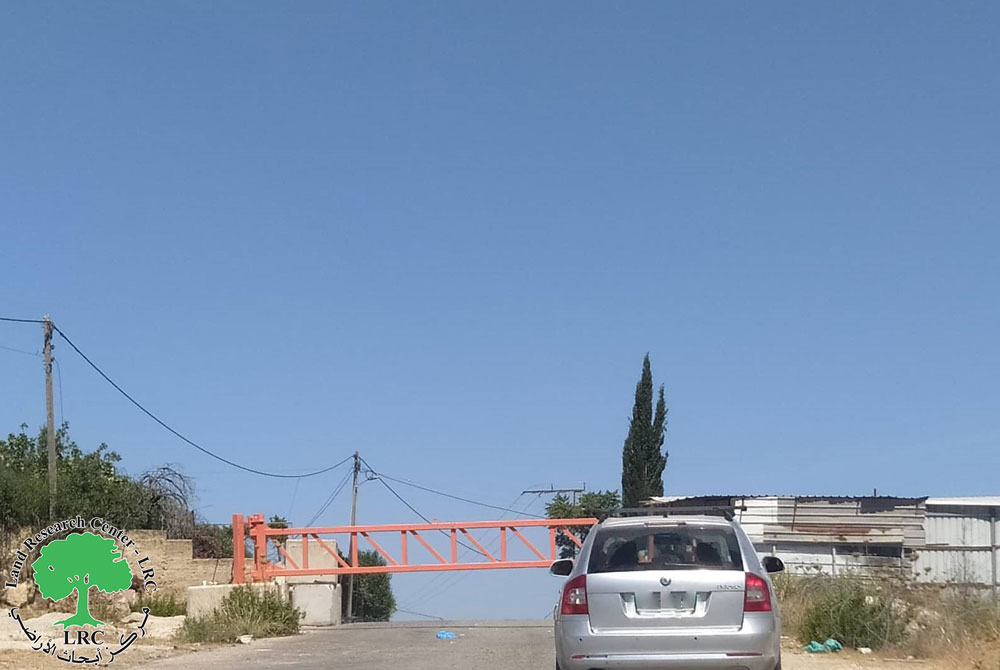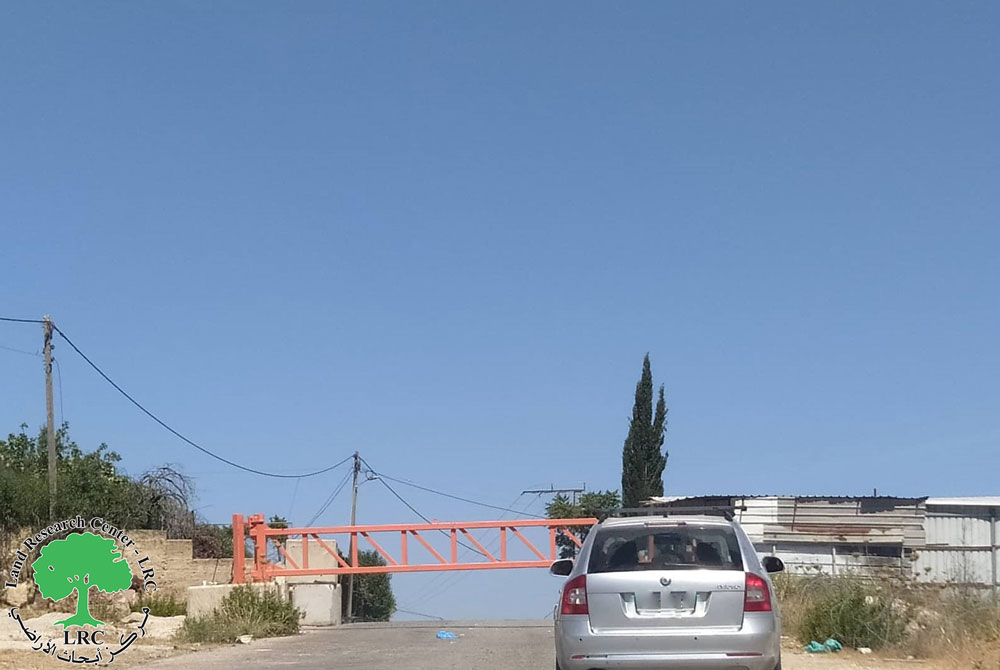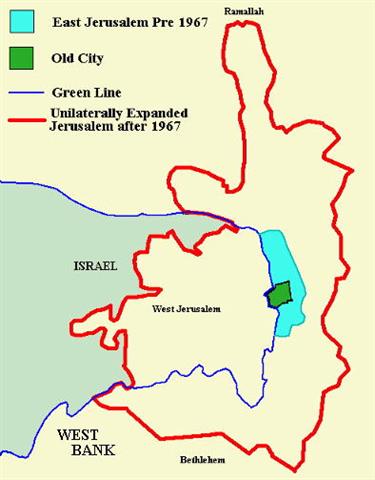The current closure and curfews that have been imposed on Palestinian cities, towns and villages since the outbreak of Al-Aqsa Intifada (September 28, 2000) have had a direct effect on both Palestinians' health and environment.
Throughout the difficult period of the siege, the Israeli army has restricted the mobility of the Palestinians within and between the Palestinian territories. This has been done by imposing checkpoints, roadblocks or digging deep ditches at the entrance of each city or town, so that nobody is able to exit or enter a location different from where they are.
On June 2, 2001 the Israeli government, decided to impose the intensive siege yet and re-enforce a complete closure and blockade on all cities and villages of the West Bank and Gaze Strip. Bethlehem was one the Palestinian communities that had been affected by the siege. This collective punishment has had an all-embracing effect in Bethlehem City where even minor roads are completely closed. In addition, critical roads have been made inaccessible by new checkpoints and roadblocks including road 60 that links Bethlehem with Hebron as well as the Wadi An-Nar road, which connects the south of the West Bank with its north. One of the effects of the closure of these two roads is the prevention of Bethlehem's solid waste from being delivered to the proper disposal sites. It is particularly difficult to reach the dumping sites because they are located in areas B and C; see map.
Before the beginning of Al Aqsa Intifada the solid waste generated in Bethlehem City was normally collected and disposed of by the municipality at two disposal sites: the El-Eizariya (Bethany) site near the Wadi An-Nar area and the Yatta dumping site, in Hebron District. However, due to the closure imposed by the Israeli army and the restricted mobility of Palestinians, these two sites are currently inaccessible. The inability to transport and dispose of the waste is a serious problem for the city. Bethlehem City produces around 22 tons of solid waste per day (Palestinian Ministry of Environmental Affairs, 2001), thus exceeding 150 tons during this week's closure. Solid waste and garbage is now accumulating over roads and near residential areas throughout the city; see photo..
Unfortunately, in an attempt to reduce its volume, the residents of the city are burning the solid waste without understanding its hazards on both human health and the environment; see photo 1 and photo 2. One example of such burning, reported to ARIJ by the Bethlehem Municipality, took place on June 7,2001, at Bethlehem market in the downtown of the city. The fire used to burn the garbage got out of hand and grew so large that the municipality sent for firefighters to put out the blaze. and . One example of such burning, reported to ARIJ by the Bethlehem Municipality, took place on June 7,2001, at Bethlehem market in the downtown of the city. The fire used to burn the garbage got out of hand and grew so large that the municipality sent for firefighters to put out the blaze.
On June 8,2001 the Bethlehem Municipality, with the coordination of the Palestinian District Coordination office (DCO) in Bethlehem District, sent a garbage truck to Yatta dumping site as a first step in trying to decrease the volume of the accumulated waste on Bethlehem roads. After passing five Israeli checkpoints and under fear of attacks from Jewish settlers, the team finally succeeded in reaching the disposal site installed between Al-Khader and Yatta villages. The Bethlehem Municipality informed ARIJ that because of these difficulties it is planning to draw up an alternative temporary waste disposal plan. A temporary dumping site will be located in Al-'Ubiediya village, until the situation improves.
The lack of data about the solid waste composition makes it difficult for Palestinians to assess the actual impact on human health, and moreover on the environment. But generally the accumulation of solid waste materials along roadsides may have a great impact on:
1. The air and health of the nearby population. Bad smell and odors are common as a result of decaying the garbage and that can be source of discomfort to the public.
2. Allow animals, scavengers and insects to invade the piles of waste and impact the health of the people.
3. The naive curiosity of children that may put them in contact with the solid waste materials exposing them to disease or injury, especially when they sort through the waste in search of aluminum, glass or other materials to sell.
4. Potential leachate from these temporary unsanitary dumping sites can reach the groundwater aquifer and then potential contamination to the scarce water resources is imminent.
The prevention of Palestinians from transporting and treating their solid waste in the West bank does not contribute to the security of Israel and clearly is a form of collective punishment. Indeed, peace is impossible as long as Palestinians are denied justice and are imprisoned within small enclaves by Israeli closure
Prepared by:
The Applied Research Institute – Jerusalem


